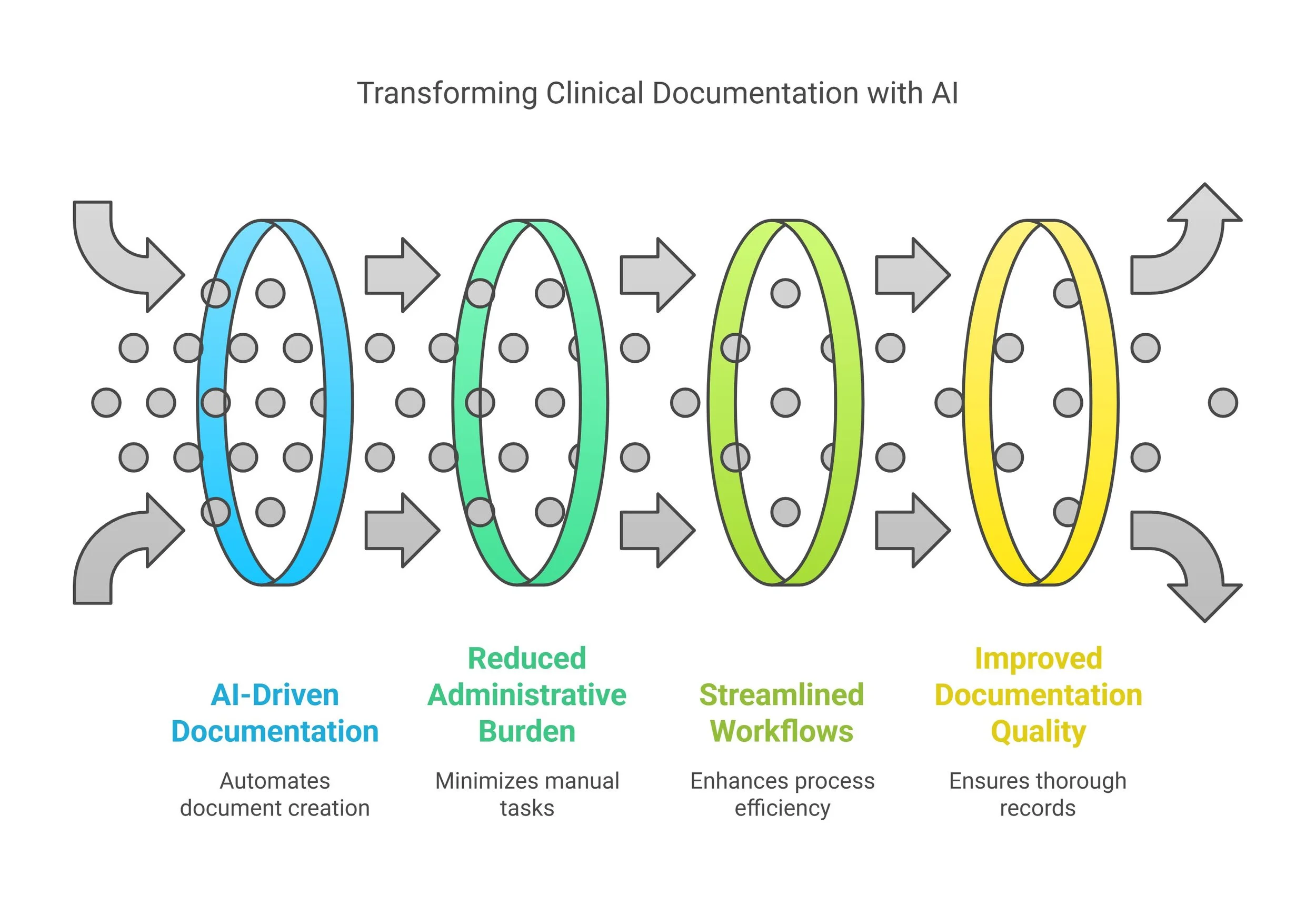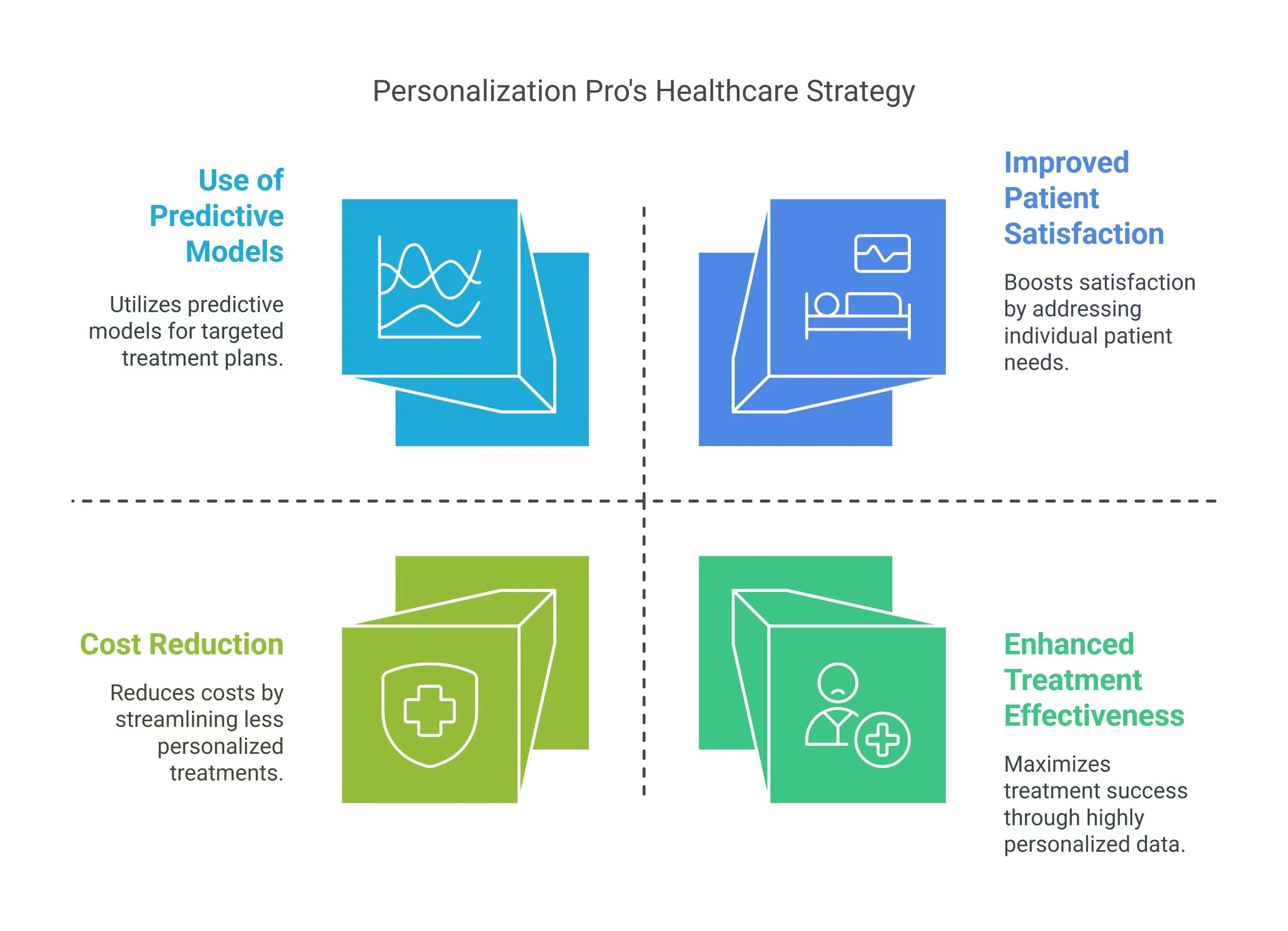How 4 EHR Vendors Are Leveraging Generative AI in Clinical Workflows
Imagine if your EHR system could predict your coffee needs before even you had the thought! While we're not there yet, AI in healthcare is doing something equally impressive—transforming mountains of data into meaningful insights, almost at the speed of light. Let’s dive into the world where technology meets healthcare, where four pioneering EHR vendors have cracked the code on using Generative AI to make medical records as lively and dynamic as the patients they represent.
The Digital Backbone of Healthcare: Electronic Health Records (EHR)
In the world of healthcare, Electronic Health Records (EHR) are not just systems; they're the digital backbone supporting the entire body of medical practice. As the foundational platforms that store, manage, and analyze patient health information, EHR systems are pivotal in improving clinical outcomes, enhancing patient care, and streamlining operational efficiencies.
Unpacking AI's Role in Healthcare
Generative AI is reshaping how healthcare providers interact with these digital records. By incorporating advanced AI tools, healthcare professionals can decode complex data sets, leading to quicker diagnoses, personalized treatment plans, and ultimately, groundbreaking patient care methodologies.
The New Frontier: Generative AI in Healthcare
Generative AI, a marvel of modern computing, is at the forefront of this innovation. This technology doesn't just analyze data but generates new data instances that can simulate real-world applications in healthcare, from synthesizing patient records to predicting disease outbreaks before they happen.
How Generative AI Powers Up EHR Systems
Imagine an EHR system not only knowledgeable about medical histories but also intuitive about future health trajectories. Generative AI integrates into these systems, providing predictive insights that help medical professionals stay two steps ahead in patient care.
Deep Dive into 4 EHR Vendors Leveraging Generative AI
The rapid evolution of Artificial Intelligence (AI) in healthcare has led to significant advances in how Electronic Health Records (EHR) are managed and utilized. Four EHR vendors, in particular, are at the forefront of integrating Generative AI technologies to enhance their systems, each focusing on a unique aspect of healthcare that leverages AI's capabilities to improve clinical workflows, diagnostics, patient care, and predictive analytics.
Vendor 1: The Document Dynamo
The first vendor, known as "The Document Dynamo," has harnessed Generative AI to transform the landscape of clinical documentation. Traditionally, the creation of clinical documents has been a cumbersome process laden with potential for human error, demanding substantial time from medical professionals that could be better spent with patients. The Document Dynamo utilizes Generative AI to automate the generation of these documents. By doing so, it drastically reduces the hours spent on manual data entry and minimizes the occurrence of errors.
AI-Driven Documentation: Utilizes Generative AI to automatically generate accurate and comprehensive clinical notes by analyzing patient data and contextual information.
Enhanced Provider Focus: Allows healthcare providers to concentrate more on patient interaction by reducing time spent on administrative tasks.
Reduced Administrative Burden: Minimizes the manual work associated with clinical documentation, lowering the potential for human error.
Streamlined Workflows: Implements AI technologies to streamline clinical workflows, making health services more efficient.
Improved Documentation Quality: Enhances the overall quality of clinical documentation, ensuring records are thorough and detailed.
Better Healthcare Delivery: Contributes to improved healthcare delivery by optimizing the accuracy and efficiency of medical documentation processes.
Vendor 2: The Imaging Innovator
The second vendor, aptly named "The Imaging Innovator," uses Generative AI to enhance medical imaging processes. Diagnostic imaging is a crucial element in medical diagnostics, providing critical insights that guide patient treatment plans. However, the clarity and accuracy of these images are paramount to ensuring correct diagnoses and appropriate treatment paths.
By employing AI-generated synthetic imaging, The Imaging Innovator is able to improve the resolution and accuracy of medical scans. This technology allows for the creation of detailed and precise images that can better reveal subtle abnormalities that might be missed by traditional imaging techniques. For instance, synthetic images can be used to augment data sets where certain types of scans are underrepresented, thereby providing a more comprehensive basis for machine learning models to learn from and improving diagnostic accuracy. This capability is especially crucial in early disease detection and precision medicine, ultimately leading to better patient outcomes.
Vendor 3: The Personalization Pro
The third vendor, known as "The Personalization Pro," focuses on the customization of healthcare through personalized medicine. This approach tailors treatment plans to individual patients based on their unique genetic makeup, lifestyle, and health history, among other factors. Personalized medicine is a growing field that promises to improve therapeutic efficacy and reduce the likelihood of adverse reactions.
Critical Role of Generative AI: Analyzes vast arrays of genetic information to identify optimal treatment options tailored to individual patient profiles.
Enhanced Treatment Effectiveness: Ensures treatments are more effective by using personalized data to guide decisions.
Increased Efficiency: Streamlines the treatment process, potentially reducing the duration and complexity of treatment cycles.
Cost Reduction: Can lead to lower healthcare costs through more targeted and effective treatment approaches.
Improved Patient Satisfaction: Enhances patient experiences and satisfaction by providing personalized care that addresses specific health needs.
Use of Predictive Models: Employs advanced predictive models to create treatment plans that anticipate and meet the unique health conditions and needs of each patient.
Success Rates: Increases the likelihood of treatment success by basing regimens on precise, data-driven insights specific to each patient.
Vendor 4: The Predictive Pathfinder
Finally, the fourth vendor, "The Predictive Pathfinder," specializes in predictive analytics. This vendor uses Generative AI to develop synthetic patient profiles that simulate various health scenarios based on existing patient data. These profiles can predict potential future health risks and outcomes, allowing healthcare providers to implement preventive measures rather than reacting to issues as they arise.
This proactive approach is particularly beneficial in managing chronic diseases, where early intervention can significantly alter the disease’s trajectory and improve quality of life. It also helps in resource allocation, ensuring that high-risk patients receive timely care, thereby optimizing overall healthcare delivery and reducing unnecessary expenditures.
The Impact of Generative AI on Healthcare
The integration of Generative AI by these four EHR Certification vendors exemplifies the transformative potential of AI in healthcare. From automating and improving the accuracy of clinical documentation to enhancing diagnostic capabilities, personalizing treatment, and predicting future health events, these advancements represent a leap forward in our ability to provide effective, efficient, and patient-centered healthcare.
These developments not only improve the direct delivery of health services but also have broader implications for healthcare administration and policy making. By leveraging AI, healthcare systems can become more adaptive and responsive to the needs of patients, leading to an overall improvement in health outcomes and patient satisfaction.
The Broad Spectrum of Benefits
The integration of Generative AI into EHR systems is not just about innovation; it's about impactful changes that enhance every facet of healthcare:
Diagnostic Precision: Sharper accuracy in diagnostics with AI's deep learning capabilities.
Operational Efficiency: Streamlined processes that save time and resources.
Cost Reduction: Significant cuts in healthcare costs due to optimized operations and resource allocation.
Enhanced Patient Experience: Faster and more personalized patient care leading to higher satisfaction rates.
Unpacking the Challenges
While the horizon is bright, the path is fraught with challenges such as data privacy, security risks, and the ever-present threat of bias in AI algorithms. Navigating these requires a balanced approach of technological innovation and stringent ethical standards.
Wrapping Up with a Focus on the Future
As we look toward a future where healthcare and AI are inextricably linked, the role of EHR vendors will be more critical than ever. Their ability to harness the power of Generative AI will determine the landscape of healthcare delivery.
Our journey into the world of AI-enhanced healthcare doesn’t end here. For those looking to further their expertise in the field, consider checking out the ACMSO’s Medical Scribe Certification, recognized as the pinnacle of medical scribing education and training.
By embracing these innovative advancements, EHR vendors are not just part of the healthcare industry; they are redefining it, ensuring that both providers and patients receive the best that technology has to offer. The future is here, and it’s wired for health.
Facts About Generative AI in Healthcare
Generative AI can simulate medical emergencies in virtual environments for training without risk to real patients.
The first AI-generated EHR entry was documented in 2021, marking a significant milestone in healthcare history.
AI has been used to predict patient no-shows, reducing wait times and improving clinic operations.
Synthetic data generated by AI is helping in rare disease research, where real data is scarce.
AI algorithms have helped unravel patterns in diseases that were previously unknown.
Generative AI is being used to create virtual 3D models of organs for surgical planning.
The technology has the potential to automate the entire medical billing process, reducing errors and fraud.
AI-generated health alerts are becoming increasingly personalized, improving patient engagement with their own health.
Generative AI has been pivotal in developing new healthcare protocols during the COVID-19 pandemic.
Advanced AI systems are beginning to interpret emotional health from patient data, opening new fronts in mental health care.
FAQs
-
Generative AI doesn’t just analyze data; it creates new data instances, providing a dynamic that traditional AI systems cannot.
-
Robust encryption, stringent access controls, and continuous security monitoring are essential safeguards.
-
Yes, by generating predictive models, AI can forecast disease spread and help in proactive healthcare management.
-
Ensuring transparency, mitigating bias, and safeguarding patient data privacy are paramount.
-
By personalizing treatment plans and predicting future health risks, AI enhances the accuracy and effectiveness of care.
-
AI can significantly reduce costs by optimizing operations and reducing unnecessary interventions.







